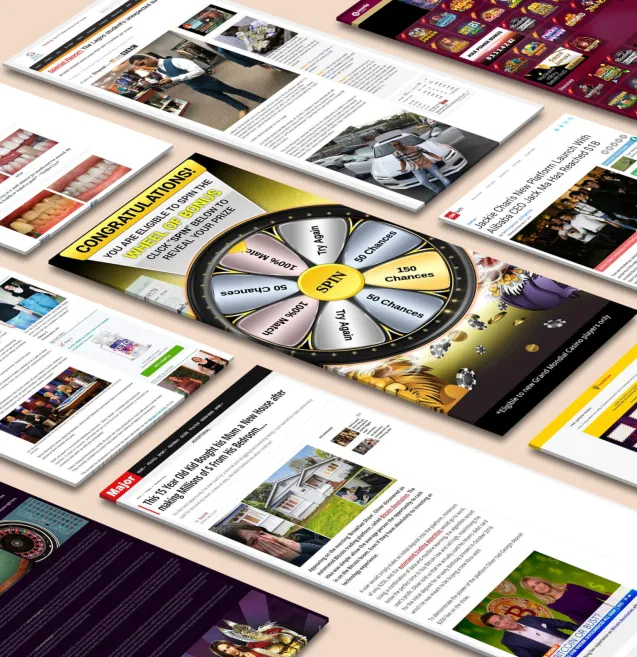
Our dropship tool integrates with Shopify and Woo-Commerce stores and automates your entire dropshipping business!
Get StartedEcommerce has become a vital tool for event planners. Selling tickets, managing registrations, and promoting events online can significantly boost attendance and streamline operations. This shift towards digital solutions makes it easier to reach a wider audience, increase sales, and manage events effectively.
WordPress ecommerce stands out as an excellent platform for creating an eventing site. Its flexibility, user-friendly interface, and extensive range of plugins make it suitable for both small and large-scale events. Whether you're planning a local workshop or a major conference, WordPress provides the tools you need to succeed.
Moreover, finding the right products to sell on your event ecommerce site is crucial. You can leverage platforms like Anstrex to identify the hottest selling dropship products and manage your store from one single platform. This ensures that your offerings align with the demands of your target audience.
Key Takeaway: In this article, we will explore how you can leverage the power of WordPress to create a successful event ecommerce site. From setting up the initial store to implementing advanced marketing strategies, we've got you covered with comprehensive tips and step-by-step guides.
Event ecommerce refers to the digital marketplace where event planners and organizers can sell tickets, merchandise, and other event-related products online. This includes various types of events such as concerts, festivals, corporate conferences, and workshops. The importance of event ecommerce is that it makes things easier, allows reaching more people, and ultimately leads to higher sales and attendance.
Online ticketing and event registration are extremely important for making your events successful in terms of both sales and attendance:
By leveraging these features, you can create smooth experiences for your attendees while also making your operations more efficient. Furthermore, incorporating a dropshipping model into your event ecommerce strategy could provide additional benefits. Dropshipping is a business model where items bought from an online store are shipped directly to customers by the supplier or manufacturer. Exploring the legalities surrounding dropshipping is crucial as it can help optimize your supply chain management while minimizing logistical complexities.
When choosing a platform for your event ecommerce website, there are several important factors to consider:
Out of all the available options, WordPress stands out as the leading choice for event planners when it comes to building an ecommerce website for their events. Here's why:
By leveraging WordPress's robust features and flexibility, you can create an efficient and attractive event ecommerce website that meets all your needs.
Setting up ecommerce on WordPress can be simplified by following a systematic approach. Below is a detailed guide to get you started.
Begin with setting up WordPress on your hosting server. Most hosting providers offer one-click WordPress installations, making this process straightforward.
Once WooCommerce is installed, it's time to add event tickets as products.
Products > Add New in the dashboard. Input details like the event name, description, and price.A well-designed theme enhances user experience.
Enhancing your store with specialized plugins is crucial for event management.
Secure transactions are vital for any ecommerce store.
WooCommerce > Settings > Payments to configure your chosen gateways. Ensure each gateway is tested thoroughly before going live.Security and performance are non-negotiable aspects of running an ecommerce store.
This step-by-step guide provides the foundational steps needed to set up a functional ecommerce store on WordPress using WooCommerce, ensuring you’re equipped with the tools required for success in event ecommerce.
Designing a visually appealing and functional event ecommerce website involves several key principles:
Choosing the right theme is crucial for an effective WordPress event website design. Here are some considerations:
"A well-chosen theme not only enhances visual appeal but also integrates essential functionalities seamlessly."
Selecting the right theme sets the foundation for a cohesive and compelling event ecommerce website. Balancing aesthetics with functionality helps create an engaging user experience that drives ticket sales and registrations.
This structured approach to designing your WordPress event website will ensure that it not only looks good but also performs effectively in terms of user engagement and conversions.
Enhancing the ticketing and registration process on your WordPress site is crucial in creating a smooth experience for attendees. Using the right WordPress event plugins can greatly simplify these processes and make sure that everything goes well.
Here are some recommended plugins that can help you optimize your event ticketing and registration:
These plugins offer a range of features to enhance your event ticketing and registration process:
These plugins not only improve the efficiency of your ticketing system but also enhance the user experience by providing a seamless registration process. Integrating these tools into your WordPress site ensures that both organizers and attendees benefit from a streamlined event management process.
Effective search engine optimization (SEO) is crucial for increasing the visibility of your event listings. Here are some strategies to make your event descriptions and landing pages SEO-friendly:
Identify relevant keywords such as "event promotion", "ticket sales", and "event registration" that potential attendees might use. Tools like Google Keyword Planner or SEMrush can help.
Create engaging titles and meta descriptions that include your main keywords. This boosts click-through rates from search engine results.
Write detailed event descriptions that answer potential attendees' questions. Include information about the event schedule, speakers, venue, and unique selling points.
Link to related blog posts or other event pages on your website. This helps search engines understand the structure of your site.
Ensure your landing pages are mobile-friendly. Google prioritizes mobile-optimized sites in its rankings.
Social media marketing is a powerful tool for driving traffic to your event listings. Consider these tactics to maximize your reach:
Choose the right social media platforms based on where your target audience spends their time. Facebook, Instagram, LinkedIn, and Twitter are popular choices for event promotions.
Share compelling visuals, videos, and stories about your event. Use hashtags like #EventPromotion or #EventName to increase discoverability.
Collaborate with influencers or industry leaders who can promote your event to their followers.
Utilize paid ads on social media platforms to target specific demographics. Facebook Ads Manager offers detailed targeting options based on interests, behaviors, and location.
Create dedicated event pages or groups on platforms like Facebook to build a community around your event. Regularly update these pages with new information and engage with followers.
SEO and social media marketing work hand-in-hand to boost the visibility of your events. Implementing these strategies will not only drive traffic but also increase conversions by attracting more attendees interested in what you have to offer.
Data analysis is crucial for understanding how successful your event ecommerce strategy is. By looking at different metrics, you can see what's working well and what needs improvement. Key performance indicators (KPIs) like ticket sales, conversion rates, and user engagement metrics give you the information you need to make smart choices about how to make your event listings and marketing efforts even better.
There are several tools available that can help you track website analytics and user behavior effectively:
Using these tools to track your metrics allows you to fine-tune your marketing strategies, enhance the user experience, and ultimately generate more sales for your events. It's important to use a combination of these tools so that you have a complete understanding of how users are interacting with your event ecommerce site.
Constantly analyzing performance data helps you stay on top of trends and quickly adapt to changing customer preferences. This proactive approach is key to staying competitive in the ever-evolving world of event ecommerce.
Mastering event ecommerce on WordPress requires implementing the right strategies and tools. Each step covered in this guide lays the foundation for a successful event ecommerce website.
Take action today:
With these WordPress tips and tricks, you can transform your event planning business. Embrace these strategies to boost your online presence, enhance user engagement, and achieve event ecommerce success. Start implementing these insights now, and watch your events thrive in the digital marketplace.
Receive top converting landing pages in your inbox every week from us.
None
Stories have the power to captivate hearts, shape perceptions, and leave lasting impressions. In the world of product reviews, storytelling transforms mundane descriptions into engaging narratives that resonate with readers on a deeper level.
Marcus Chen
7 minJun 13, 2025
Guide
Psychographic segmentation has become an essential marketing strategy that analyzes consumers' psychological characteristics including their values, attitudes, interests, and lifestyle preferences. Unlike demographic segmentation, this approach provides deeper insights into consumer motivations and decision-making processes, enabling marketers to create more resonant messaging and personalized experiences. By understanding the "why" behind purchasing decisions rather than just the "who," brands can develop stronger emotional connections with their target audiences and drive more effective marketing campaigns.
Priya Kapoor
7 minMay 24, 2025
Tips & Tricks
Telemarketing remains a valuable direct communication channel that enables businesses to establish immediate personal connections with prospects, facilitating real-time conversations that can address questions and overcome objections more effectively than digital alternatives. Modern telemarketing strategies integrate sophisticated data analytics and customer relationship management systems to target the right prospects with relevant offers, significantly improving conversion rates while reducing wasted resources on unqualified leads. When executed professionally with well-trained representatives following carefully crafted scripts, telemarketing creates opportunities for meaningful dialogue that builds trust and provides valuable market insights while complementing other marketing channels in a comprehensive omnichannel approach.
Priya Kapoor
7 minOct 17, 2024




